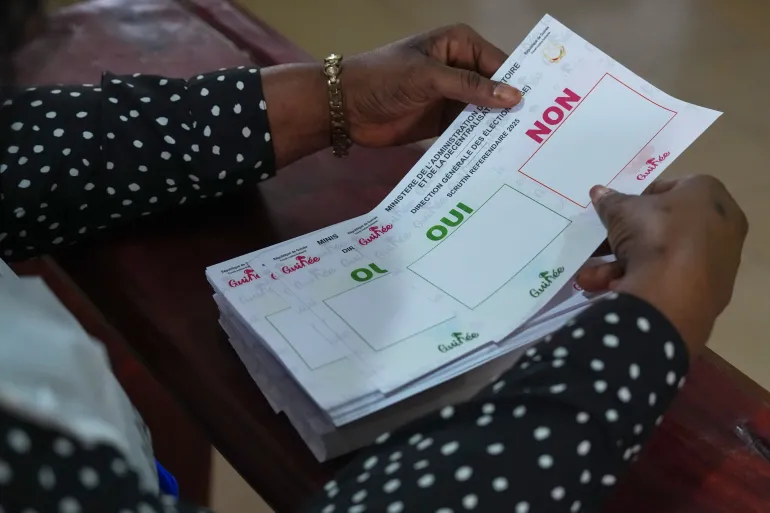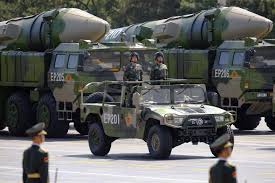Conakry, Guinea – Guinea is holding a long-awaited referendum on a new constitution that could pave the way for coup leader Mamady Doumbouya to run for president while transitioning the country from military to civilian rule.
Some 6.7 million eligible voters were called to cast a “yes” or “no” vote on the proposed constitution, which would extend the presidential term from five to seven years, renewable once, and create a Senate, one-third of whose members the president could directly appoint.
In the capital, Conakry, political campaigning was banned on Friday and Saturday ahead of the vote. Thousands of citizens gathered early at polling stations to cast their ballots. The government deployed over 40,000 security personnel to maintain order, citing concerns over potential unrest.
Al Jazeera’s Ahmed Idris reported that while some view the draft constitution as “impressive and progressive,” critics argue it legitimizes the current military leadership and could allow coup members to participate in the upcoming presidential election, despite a transitional charter barring them from running.
General Doumbouya seized power four years ago, overthrowing former President Alpha Conde. The military government had committed to returning Guinea to civilian rule by December 2024, but the deadline was missed, raising suspicions of a power consolidation strategy.
Two prominent opposition leaders, Cellou Dalein Diallo and Alpha Conde, have called for a boycott of the vote, and their parties are currently suspended. Human Rights Watch has accused the military government of disappearing political opponents, allegations the government denies.
The referendum is being closely watched across West and Central Africa, a region that has experienced eight coups since 2023, reshaping the political landscape. Analysts warn that the outcome could set a precedent for military-led governments in the region, with fears of undermining democratic norms.
A presidential election is scheduled for December 2025, but Doumbouya has not confirmed whether he intends to run. Observers fear that approval of the new constitution could pave the way for him and other coup members to contest the elections legally.
Despite opposition calls for a boycott, the referendum is widely expected to pass. The results are anticipated within two to three days. If approved, the new constitution would mark a significant shift in Guinea’s political structure, potentially extending the military’s influence in governance under the guise of civilian rule.
The vote comes amid heightened international attention, as countries and organizations watch Guinea’s political trajectory carefully. While some see the reforms as an opportunity for modernization and stability, many view the process as a thinly veiled attempt to entrench military power.



